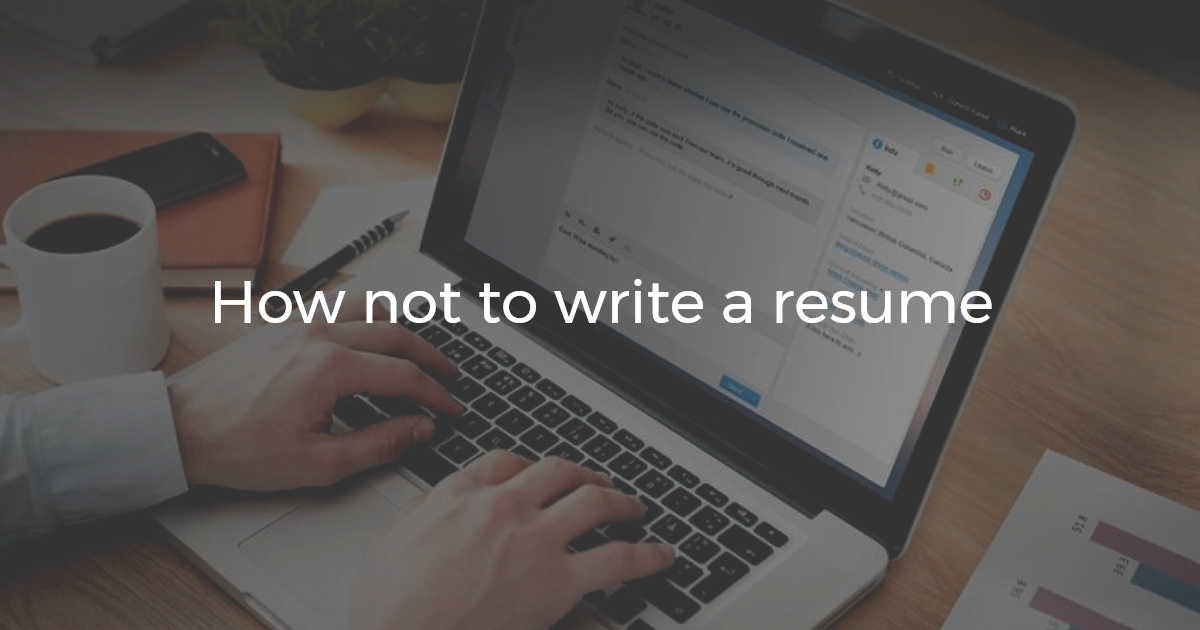
How not to write a resume
Writing a resume is an important task, but it’s just as important to know what not to do. Avoiding common mistakes can help ensure that your resume stands out for the right reasons. Here’s a list of how not to write a resume, with tips on what to avoid:
1. Don’t Use an Overly Complicated Layout
- Avoid busy or complex designs with excessive fonts, colors, and graphics.
- Keep the layout clean and easy to read. Use a simple font like Arial, Calibri, or Times New Roman and stick to a professional layout.
- Don’t clutter your resume. Too much information or excessive design elements can distract from the key content.
2. Don’t Include Irrelevant Information
- Avoid listing outdated or irrelevant jobs. If you have experience from years ago that isn’t relevant to the job you’re applying for, don’t include it.
- Don’t include personal information such as your age, marital status, religion, or social security number. This can make your resume look outdated or even risky in terms of privacy.
- Don’t list hobbies or interests unless they directly relate to the position.
3. Don’t Use an Objective That’s Too Generic
- Avoid a vague or overly general objective like: “Seeking a challenging position to use my skills.”
- A good resume should focus on what you offer rather than what you want. Instead, use a summary or career statement that highlights your unique qualifications and what you can bring to the role.
Wrong Example: “Objective: Looking for a job where I can grow.” Right Example: “Professional digital marketer with 5+ years of experience in SEO and content strategy seeking to leverage expertise in driving traffic and lead generation for XYZ Corp.”
4. Don’t Write a Long, Wordy Resume
- Avoid writing paragraphs. Hiring managers have limited time, so keep your resume concise and to the point.
- Don’t include unnecessary details. Use bullet points and short sentences to make your resume easy to skim.
- Ideally, your resume should be 1-2 pages. For entry-level positions, keep it to 1 page; for more experienced roles, 2 pages are acceptable.
5. Don’t Lie or Exaggerate Your Experience
- Avoid exaggerating or fabricating details. Don’t claim experience you don’t have or skills you haven’t mastered. Honesty is crucial because hiring managers often verify the information you provide.
- Misleading information could result in disqualification or even termination if discovered later.
6. Don’t Use Overused Buzzwords
- Avoid clichéd terms like “hardworking,” “team player,” “go-getter,” or “self-starter,” unless you can provide specific evidence of those qualities.
- These words are too generic and don’t add value. Instead, focus on skills and achievements that highlight your unique capabilities.
Wrong Example: “A dedicated team player with excellent communication skills.” Right Example: “Collaborated with a cross-functional team to launch a new product, increasing revenue by 15%.”
7. Don’t Use Unprofessional Email Addresses
- Avoid using unprofessional or outdated email addresses like “[email protected]” or “[email protected].”
- Create a professional email address that includes your name, such as “[email protected].” This ensures you come across as more professional and serious.
8. Don’t Include Unnecessary Formatting
- Avoid excessive formatting like bold, italics, and underlines. Use formatting sparingly and only to highlight sections (e.g., headings) or key achievements.
- Keep the font size consistent (usually 10-12 pt) and avoid fonts that are too quirky or hard to read.
9. Don’t Use Passive Language
- Avoid passive language like “Was responsible for” or “Assisted with.” These don’t convey your impact or achievements effectively.
- Use active verbs that demonstrate your involvement and initiative, such as “Led,” “Improved,” “Increased,” or “Developed.”
Wrong Example: “Was responsible for managing a team of five people.” Right Example: “Led a team of five to successfully complete a project ahead of schedule.”
10. Don’t Forget to Tailor Your Resume for Each Job
- Avoid using a generic resume for every application. Tailor your resume to the job you’re applying for by emphasizing relevant skills and experience based on the job description.
- Customize your resume headline, summary, and key skills to fit the role you’re targeting.
11. Don’t Include Job Duties Without Achievements
- Avoid just listing job duties without demonstrating what you accomplished in each role.
- Focus on results and achievements, using quantifiable metrics (like “increased sales by 25%” or “reduced project costs by 10%”) to show your impact.
Wrong Example: “Managed customer service inquiries.” Right Example: “Handled customer service inquiries, resolving issues with a 95% satisfaction rate.”
12. Don’t Forget to Proofread
- Avoid submitting a resume with typos or grammatical errors. Always proofread your resume multiple times before sending it out.
- Don’t rely solely on spell check. Read through your resume carefully, or ask someone else to review it.
13. Don’t Use the Same Resume for Every Job
- Avoid using the same exact resume for every position. Tailor your resume to match the specific qualifications and skills the employer is seeking. Small changes can make a big difference, like adjusting the wording in your job experiences or including specific skills mentioned in the job posting.
14. Don’t List References on Your Resume
- Avoid listing references directly on your resume (e.g., “References available upon request”). This takes up valuable space and is unnecessary. Employers know they can request references later if needed.
Final Thought:
Your resume is often the first impression a hiring manager has of you, so it’s crucial to make it professional, concise, and tailored to the job you’re applying for. Avoiding these common mistakes will help ensure your resume gets the attention it deserves and increases your chances of landing an interview!

Comments are closed.